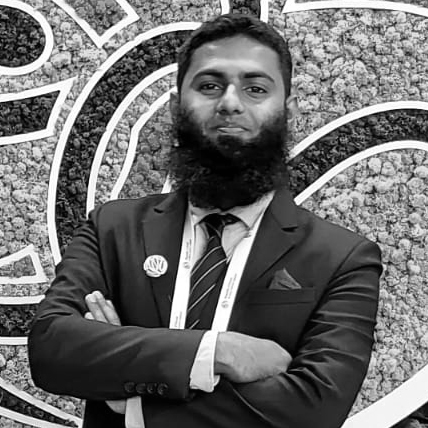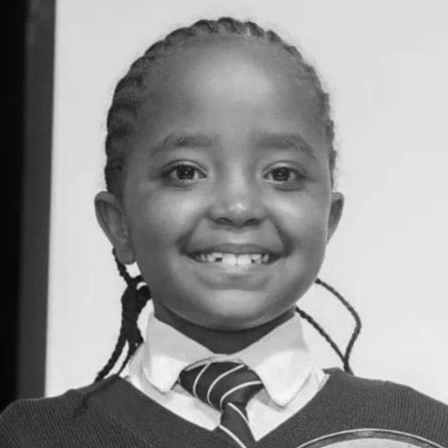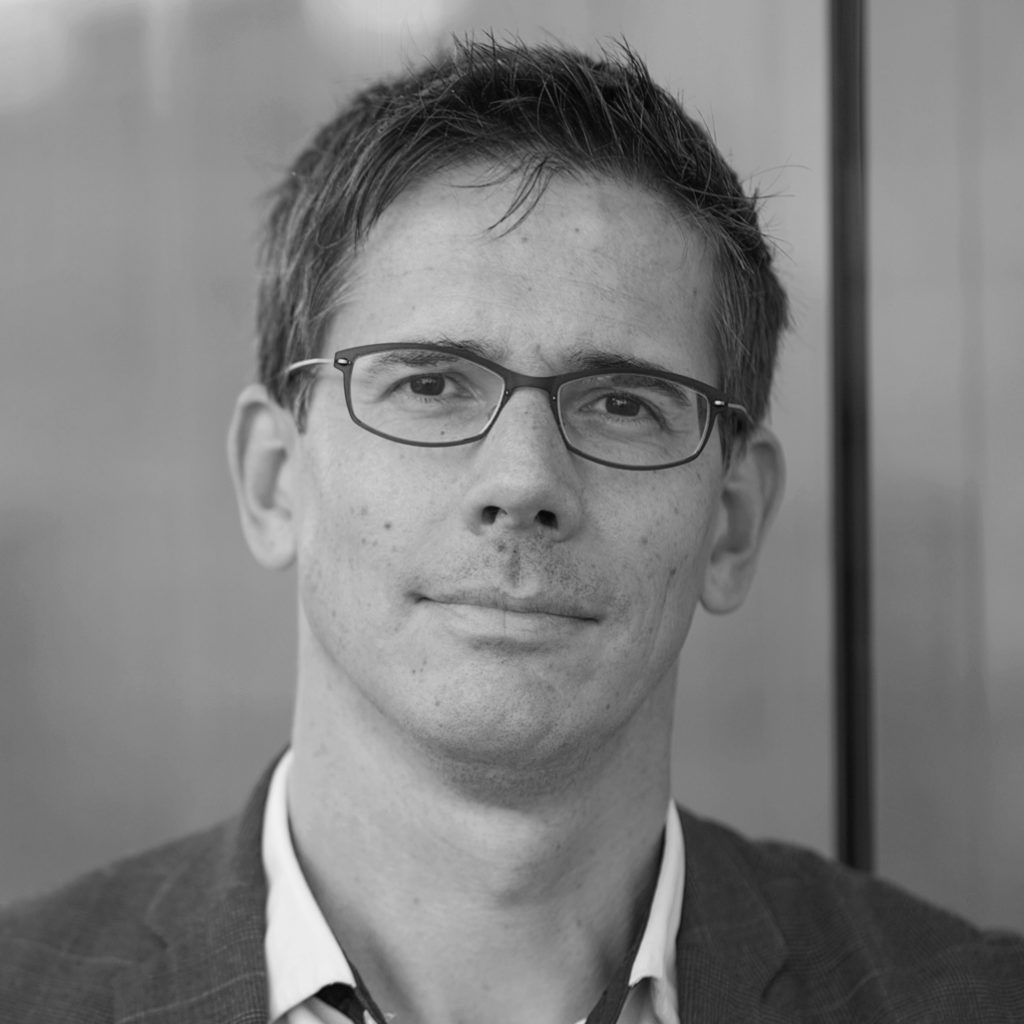+++ 21.11.2022 Update on the outcome of COP27 by Bas Eickhout MEP: “We finally have a fund for loss and damages – but still not enough climate action.”
This year, at COP27, we lost a crucial year for ambitious climate action.
Last year in Glasgow, the world agreed to speed up the process of setting five-year targets. Countries were asked to hand in new targets by the end of 2022. That process yielded nothing at this summit. 2022 became 2023, the agreements hardly became more concrete.
Europe mainly fought to get new climate ambitions into this year’s climate agreement, such as peaking emissions by 2025. It soon became clear that many countries did not want to go beyond last year’s climate ambition, or even wanted to water down the text. This year, Europe had to fight until the end to even keep last year’s ambition intact. This is simply insufficient if we want to meet the climate targets. And so this year’s COP27 puts even more pressure on us ahead of next year’s climate summit.
The debate on phasing out fossil fuels – the culprits of climate change – was also settled in favour of oil and gas countries. To stay below 1.5 degrees of global warming, it is necessary to stop building new fossil infrastructure. One piece of good news was that India now supports a phase-out of all fossil fuels, creating momentum to include this in the final agreement.
But in the end, countries like Egypt, Russia and Saudi Arabia managed to keep the phasing out of fossil fuels out of the final agreement. Their self-interest proved greater than the interest in a clean and safe future of us all. It is incomprehensible that the conclusions of a climate summit totally ignore the cause of the climate crisis. With Dubai hosting the UN climate conference next year, I fear paradox will stay for some time.
Positive outcome of COP27: polluters agree to pay for loss and damages of people most affected by climate crisis
On Friday night, the EU finally showed leadership and broke the stalemate by speaking out in favour of a fund for loss and damages. The agreement on a fund is a first step towards climate justice. But how the fund should be financed and who is eligible for money will only be worked out in the coming year. Recent years have shown us that great strides can only be made if bridges are built – in this case between the so-called developed and developing countries.
With climate change becoming a daily reality for more and more people, solidarity will play an increasingly important role. But we also need to turn climate ambition into action. Let this be a hard lesson for next year: climate ambition and solidarity are two sides of the same coin. We must not capitulate in the face of the climate crisis. So let’s keep fighting for a liveable planet and and climate justice for all.
The climate crisis is not shared equally – Listen to the Global South
Loss and damage at COP27: The UN Climate Convention is gearing up for its 27th edition in Sharm el-Sheikh, Egypt. COP27 is the place for the global community to work together on ambitious climate goals – but time is running out.
The consequences of climate change are not shared equally. The most vulnerable are paying the highest price. Those born in the Global South, women, children, the disabled, ethnic minorities, gender and sexual minorities and the Indigenous will suffer the highest losses and will face the most damage. And they struggle the most to have their voices heard.
This is why at COP27 the Greens/EFA in the European Parliament are passing the mic to those who are usually not heard at the climate conference. Read the stories from Riwa Ghawi from Lebanon, Abidur Rahman Abid from Bangladesh and 10-year old Karen from Kenya.
For them, the EU needs to step up its climate action and make polluting countries pay for the loss and damages in other countries.
At COP27 we need to finally deliver additional resources to address loss and damage, with a priority to grants, not private finance.
Read the Greens/EFA demands for the COP27 climate conference in Sharm el-Sheikh here.
“At COP27 polluters need to start paying for loss and damages”
Riwa Ghawi is a climate activist who focuses on gender equality, freedom of speech and climate awareness. She has worked with the Asia Pacific Greens Federation and the Global Young Greens. She is also the founder of Green Wave LB, an initiative to connect young Lebanese activists with the international Green community.

Riwa Ghawi from Lebanon:
“If we don’t stick to the Paris Agreement, it’s us, the most vulnerable, who will pay the price first.”
COP27 already starts with loose ends, stalemate and failures from Glasgow left to address with urgency in Sharm el-Sheikh. This year has seen unprecedented extreme weather events. They show us the size and scale of the climate emergency, and urgency to move past the definitions and terminologies that COP26 gave most its attention to. We need to focus on immediate action towards loss and damage and we need to do it now.
As the climate emergency further exacerbates, not everyone in the world experiences those climate repercussions equally. With resources for preparedness and responses mostly in the Global North, the Global South is already struggling now. The floods in Pakistan have had devastating effects, resulting in over 1700 deaths. Climate catastrophes did not spare Indonesia, Sri Lanka, Nigeria, and Venezuela either. But particularly the poor and vulnerable, suffer the impacts of climate change the most. The poorest 50% are only responsible for less than 10% of the emissions world wide. Ultimately, the wealthy minority of 10% causes climate catastrophes, that causes 50% of world wide emissions.
This year’s UN General Assembly saw UN chief Antonio Guterres describe loss and damage as “a fundamental question of climate justice”. He added that “vulnerable countries need meaningful action” which requires polluters to pay up.
Disaster relief is not enough – we need to prevent slow climate catastrophes
The UNFCCC uses the term loss and damage to describe that a climate emergency requires institutional response. However, while some climate disasters, like hurricanes, wildfires and floods can prompt immediate response for disaster-relief, slow-moving catastrophes such as desertification, droughts and sea-level rise require more attention and finance to prevent them. The loss of life, biodiversity, culture, livelihoods and territory and the damage to property and infrastructure forcing people to flee their homes often go unaccounted for.
Due to already high temperatures, the Middle East is especially vulnerable to the impact of climate change on the region. Intensified sandstorms have repeatedly smothered cities in Iraq this year, with over 5000 people being hospitalised. The climate crisis has eaten away crucial farmlands surrounding Egypt’s Nile Delta. Droughts in Afghanistan are at their worst in decades. Lebanon faces increasingly harsh wildfires every year, ravaging the country and displacing thousands. Across the region, climate change and poor environmental practices are threatening already unstable systems. Large portions of the world’s crude oil reserves are in Arab countries, and their economies heavily rely on their production, complicating efforts to promote climate-conscious policies.
Changes in climate patterns and higher temperatures will also affect the ability of those regions to produce food. As of 2019, more than 50 million individuals in the region are chronically malnourished, mainly in conflict-affected states and among an increasing refugee population. Additionally, 70% of the world’s most water-stressed countries are in the Middle East and North Africa, posing threats to human life, loss of local agriculture, and entailing economic, social, and political instability.
Leaders at COP27: Stop investing in fossil fuels and invest in our future instead
COP27 presents the opportunity to look at the failures of the COP26 negotiations. Let’s build on Article 8 of the Paris Agreement to reconsider the work with fossil fuel companies, corporations and major polluters. We need to establish a compensation fund for victims of climate change instead, dedicated to climate mitigation and adaptation on the basis of equity, historical responsibility and global solidarity. Now is the time to apply the polluter pays principle.
If COP27 ends the stalemate since the Paris Agreement, by diverging from liability and compensation-based insurance, we can gain back some optimism by starting to mitigate damages. But until polluters, governments and corporations commit to pay for our loss and damages, the Paris agreement is only an ambitious goal that politicians set in 2016 and forgot about shortly after. If we don’t stick to the Paris Agreement, it’s us, the most vulnerable, who will pay the price first.
“Industrial countries need to be held responsible for their climate inaction”
Abidur Rahman Abid is a student from Bangladesh researching the environment, agriculture and forestry. Displaced by climate disasters, he is organising the Bangladeshi youth to fight with him against climate change.

Abidur Rahman Abid from Bangladesh:
“A message to the world – We need you to pay for our loss and damage now.”
I have been a witness to loss and damage due to climate change in my country since 2007. The cyclone “Aila” killed 190 people, destroyed 2 million houses and 3 million acres of crop land, and left behind over $270 million in economic devastation in total. In the same year, cyclone “Sidr” killed up to 4,000 people and caused an estimated economic damage of 2.3 billion. This cyclone also forced my family to migrate. Then came cyclone “bulbul” in 2019, cyclone “fani” in 2019, “amphan” in 2020, “yass” in 2021. All these cyclones have taken lives, people had to move, and have lost their crops and animals.
After every cyclone, the country is under water. What follows the floods is food and drinking water scarcity, health problems, financial and physical problems for the affected people. Bangladesh is also experiencing loss and damage from sea level rise, drought, salinity, etc.
Every day the intensity of climate change is increasing in Bangladesh, the loss and damage is increasing. It is the 8th most populated country of the world with most of its territory less than 10 meters above sea level. Bangladesh ranked 7th in terms of loss and damage from extreme weather events from 2000 to 2020, according to the 2021 Climate Risk Index.
4.1 million Bangladeshis were displaced due to natural catastrophes in 2019. In 2050, one out of seven people could have to move due to climate disasters. 11% of the coastal area will be underwater. This year’s heavy rains have been the worst monsoon rain in 122 years. One part of Bangladesh was underwater for two months.
Nations contributing to climate change have to compensate us for our loss and damages
In the last twenty years the estimated cost of the 185 extreme weather events cost Bangladesh $3.72 billion in economic losses.
We are not the cause of climate change, but we are the one of the most affected people and areas and bearing the costs of loss and damage. Research by IIED, UNDP and Britain’s Kingston University found that Bangladeshi rural people spend around 2 million a year on their own to prevent disaster. That is 12 times what Bangladesh gets from international donors. Nations that contribute to climate change must be held accountable, they have to compensate for our loss and damage.
As a climate migrant, I want justice and to fix the loss and damage properly. Developed countries committed to giving 100 billion US dollars at COP15 to the developing countries every year, but there hasn’t been a single year that has reached that amount. The closest registered contribution towards this target was in 2021, when public and private sources raised $80 billion. We also demand a stop to the debt collection from the global south. You need to put your money into adaptation projects for the most vulnerable communities, and you need to do it now.
At COP26 you made promises but you did not keep them. Now you are attending COP27 while my country’s people are dying. Bangladesh will not forgive you if loss and damage are not prioritised and implemented at COP27.
“We can’t go to school because of the climate crisis”
Karen is a 10-year old climate activist from Kenya. She is currently African Forest's brand ambassador and Team Environment Kenya’s international brand ambassador. She fights for intergenerational justice and a liveable planet at COP27.

Karen Wajiru Kimani:
“ Children are losing their education because of climate change. Listen to us children and pay for our losses.”
My name is Karen Wanjiru Kimani. Today, I want to talk about loss and damage.
I have a big tree nursery near my home in Utawala, Nairobi, with many different types of trees, and 30.000 seedlings. But I have been having a lot of problems. My trees are now very very big. Their roots have become big and gone past the pots. If you dig holes to plant them, they won’t grow well. They will be weak.
Why have my trees become so so big in my nursery? I will tell you why. It is because people are not buying my tree seedlings. Because there is not enough rainfall due to climate change. They say they will buy my seedlings when the rain falls. I will lose many trees if the rain continues to fail. Vinnie is the man who works hard to look after my tree seedlings when I am in school. He is hard working. He is paid when I sell tree seedlings. If I can’t sell my seedlings, I can’t get money to pay him.
Climate change causes big loss in Kenya. In northern parts of Kenya like Turkana, people continue to suffer due to climate change. They have lost almost everything. I see this on the news every day and it is very sad. Their cows, goats and camels have died. There is no water and food for the animals.
Loss and damage to us means no food, no water, no education
Children are going hungry because there is no rain to grow their food.
Children cannot go to school in these areas. They get school fees when their parents sell the livestock. Now almost all the livestock have died.
Climate change has brought this very big loss to them. Children are losing their education because of climate change. And that is why everyone must do something like I do about planting trees. This will increase rainfall.
Sometimes during the rainy season, the rains are too heavy. Heavy floods damage trees and crops. Climate change have also caused this heavy rains. Some homes and schools become flooded and are damaged by the water. Even some bridges and roads are damaged.
Climate change is a very serious problem in Kenya. Leaders need to find the solution. Leaders need to listen to everyone including children like myself because we are tomorrow’s leaders.
To keep to 1.5 degrees COP27 needs to deliver on climate justice

The Greens/EFA MEP Bas Eickhout:
“The richest countries need to put the money where their mouth is. COP27 needs to deliver a Loss and Damage Finance Facility”
After devastating floods in Pakistan this summer, which displaced millions of people and destroyed the home and livelihood of hundreds of thousands, the discussion on Loss and Damage entered the center stage of the international climate debate. The climate change induced floods are estimated to have caused 40 billion dollars of damage, which is not only a catastrophe for a vulnerable country like Pakistan, but also a stark reminder of what is to come.
With investments in mitigation and adaptation lacking and climate targets getting harder to reach, developing countries are estimated to face damage amounting to 290-580 billion dollars a year in 2030 and over a trillion dollars by 2050, every year. This would not only restrain their capability to ensure economic and social development, it would harm their ability to live up to the pledges under the Paris Agreement. Ensuring Loss and Damage action is literally a matter of survival.
Enough talking about loss and damage – let’s start real climate action at COP27
The notion of Loss and Damage due to climate change is not new. Since 1991, developing countries have demanded action, arguing that they are not the ones to cause climate change, but they will be the ones to suffer the consequences. This is undoubtedly true. Currently, the V20, 58 of the most vulnerable countries, which home about 20% of people on earth, cause 5% of global GHG emissions. The G7 is responsible for over a third of global CO2-emissions since 1850, despite being home to only 10% of the global population today. However, while these numbers speak for themselves, action has been slow and limited.
After years of discussion, in 2013 the Warsaw International Mechanism for Loss and Damage (WIM) was established, which was necessary for a more informed discussion on Loss and Damage. But, since then, the world has mainly talked, not acted. Typical is the outcome during the last COP, the world could only agree on another dialogue on Loss and Damage: the Glasgow Dialogue. Until now these dialogues have mainly shielded developed countries from taking meaningful action.
The richest countries need to put the money where their mouth is
Another discussion is a perfect stall for the richest countries, but developing countries will demand concrete action at COP27. And rightly so. Now that the issue is finally at the centre of the agenda, the climate summit cannot harvest any success without it. The richest countries need to put the money where their mouth is.
The G7 is therefore, in cooperation with the V20 – the 58 most vulnerable countries -, working on a ‘Global Shield against climate risks’, which is strengthening coordination, mobilizing and pooling donor funds and supporting insurance. While coordination of existing finance is indeed needed and insurance can be part of the solution, it won’t be sufficient to tackle the finance needs of countries which are already suffering to pay for existing debt payments. Let alone that insurance will reach the informal sector, protect human rights or prepare for future displacement and livelihood loss.
Therefore we need new, adequate and additional resources to address loss and damage, with a priority to grants, not private finance. That’s why the European Parliament calls for the establishment of a Loss and Damage Finance Facility at COP27. As lead of the EP-delegate I’ll be pressing for this during the COP in Sharm-el-Sheikh.
At COP27 we need to deliver on the Loss and Damage Finance Facility
NGOs and developing countries have shown us how such a facility could work. It should provide the necessary finance to support concrete projects, policies, planning and coordination and other activities to address Loss and Damage in developing countries. Both for slow-onset events (like sea-level rise) and rapid-onset events, such as storms and floods. Funding should be simply accessible and mainly come from developed donor countries which should set funding targets, as was done for mitigation and adaptation, so that there is a continuity in financing streams.
Whatever valid arguments developing countries might have, chances are very small that COP27 will deliver on a Loss and Damage finance facility. While the debate moved from technical assistance, to insurance schemes and a discussion on funding activities, the fundamental debate on liability is still undecided. As long as developed countries are not ready to admit that they have contributed the lion’s share of global warming, loss and damage will be keeping climate conferences hostage and making it increasingly difficult to keep warming to 1.5 degrees.
Many of us may not want to admit or see it, but COP27 will be about climate justice.
Read the Greens/EFA demands for the COP27 climate conference in Sharm el-Sheikh here.

 (@GreensEFA)
(@GreensEFA) 